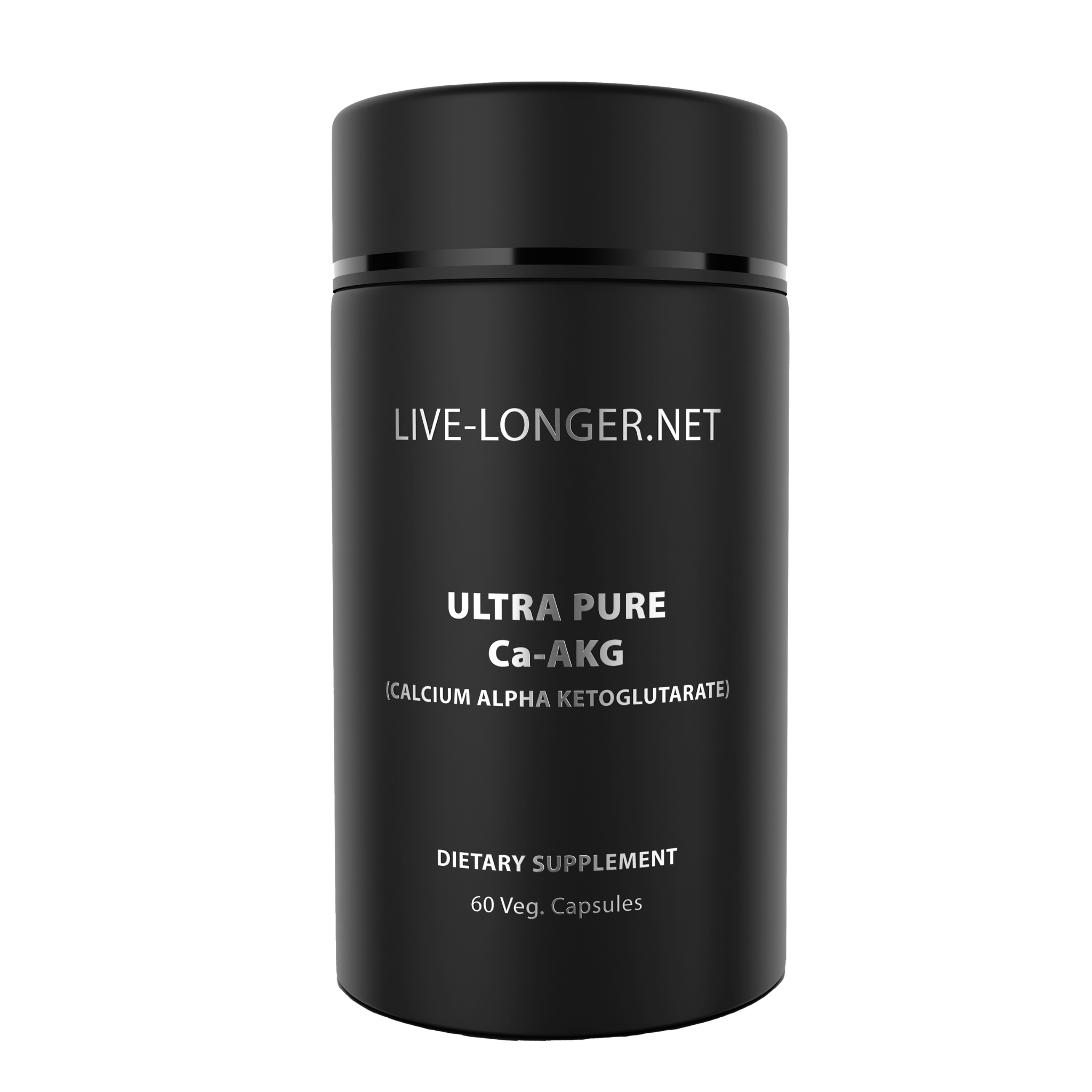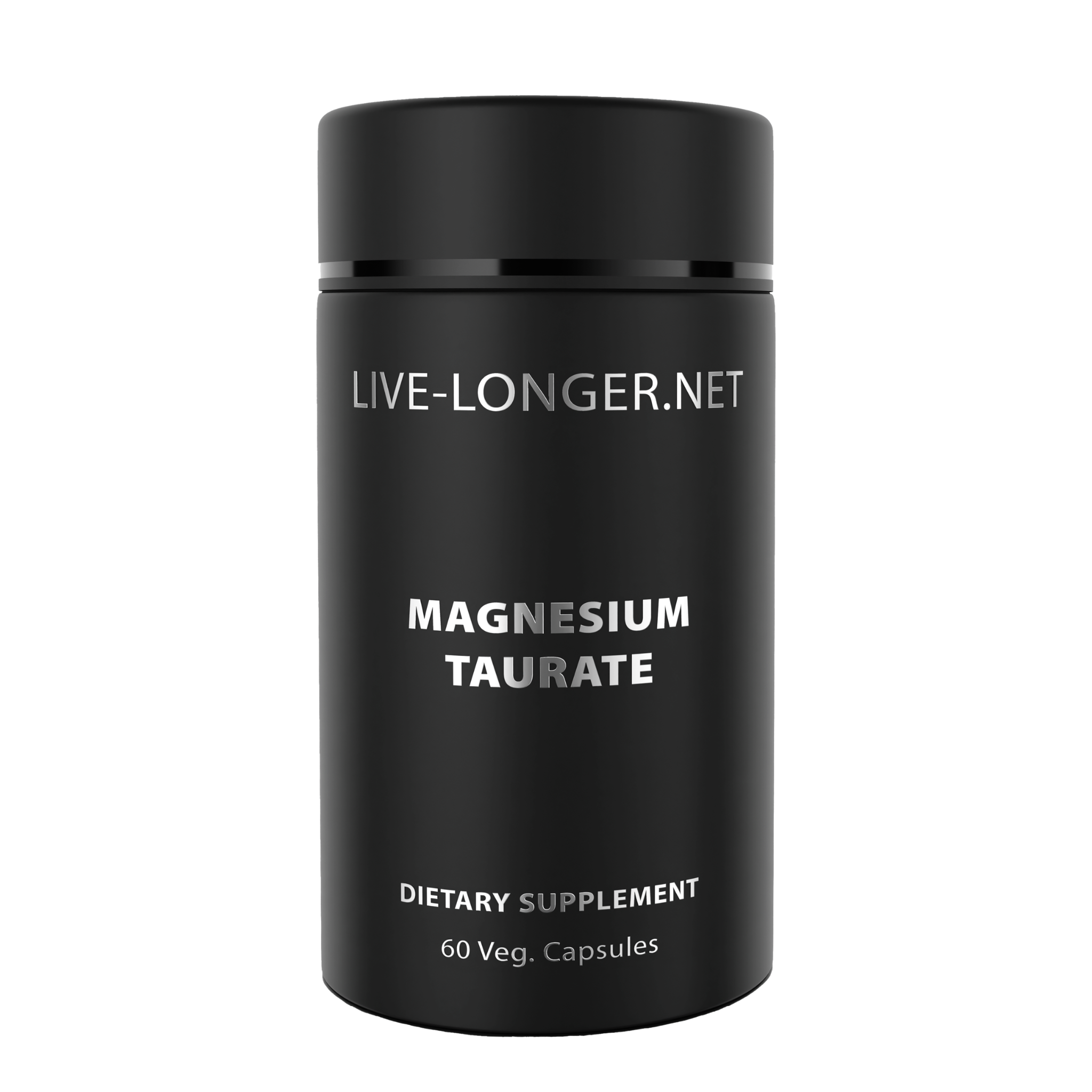As we journey through life, concerns about aging often loom large. With each passing year, the body's defenses may wane, leaving us vulnerable to diseases. However, understanding the intricacies of the aging of the immune system is the first step toward empowerment.
Aging gracefully isn't just about maintaining a youthful appearance. It's also about safeguarding the body's internal defense — the immune system. This intricate network of cells, tissues, and organs serves as our frontline defense against pathogens and foreign invaders. Therefore, its health is paramount for our overall well-being. Its health influences everything from our ability to fight infections to our resilience against chronic diseases.
In this blog, we will discuss the importance of sustaining a robust immune system as we age. We'll explore actionable strategies and introduce effective supplements to fortify our defenses, ensuring that the passage of time doesn't diminish our vitality.
So, without further delay, let's discover how we can thrive, regardless of the years that pass.
Aging of Immune System: The Basics
As we age, the immune system undergoes profound changes, referred to as immunosenescence. This transformation involves a spectrum of changes in the immune system's function. Ultimately, these changes impact its ability to defend against pathogens. Key changes include (1),
- Decline in the production of immune cells, such as T cells and B cells
- Decreased ability of these cells to respond against foreign invaders
Several factors contribute to immunosenescence and the subsequent decline in immune function.
First, chronic inflammation which is common in older people. It can mess up how the immune system works. This makes it harder for our body to fight off infections (1). Also, there is a gland - the thymus gland - which helps make important immune cells called T cells, which shrink as we age. Shrinkage of the thymus means fewer immune cells and ultimately weaker immune system (2).
Therefore, it's important to understand these changes, so we can find ways to keep the immune system strong. By figuring out what causes our immune system to weaken, we can come up with ways to help it stay healthy. This can improve our overall health and well-being.
The Role of Nutrition in Supporting Immune System
Eating the right foods is essential for keeping our immune system strong. A balanced diet gives our body the vitamins and nutrients to help our immune system work well. This includes producing immune cells, controlling inflammation, and strengthening our tissues.
As we age, we might not eat as well, which can lead to not getting enough of certain vitamins. This can weaken our immune system and make us more likely to get sick or have long-term health problems (3).
Also, our bodies change with time. So, eating foods with lots of nutrients is important to help our immune system stay strong. Things like fruits, vegetables, lean meats, whole grains, and healthy fats are good for us and help keep our immunity in shape (4).
Key Strategies Against Aging of Immune System
Dietary Supplements
In the quest to support immune health, dietary supplements play a pivotal role in complementing a balanced diet. Let's explore each supplement and its unique benefits.
1. Ultra-Pure Apigenin:
This flavonoid compound found in plants such as parsley and chamomile has garnered attention for its potent antioxidant and anti-inflammatory properties. According to a study, apigenin supplementation promotes the production of certain types of immune cells. This effect is known as immunopotentiation - making apigenin an excellent dietary component for someone who wants to keep top-notch immunity (5).
2. Ultra-Pure Omega 3:
In the context of immune health, omega-3s play a crucial role in regulating inflammation and supporting immune cell function. According to a clinical study, Omega-3 fatty acids enhance the immune response by increasing the frequency of neutrophils and other immune cells in the bone marrow, spleen, and liver. Findings have also demonstrated positive outcomes of omega-3 supplementation in reducing symptoms both in animal disease models and humans (6). Therefore, adding ultra-pure omega 3 to your dietary regimen is an important step to stop the aging of the immune system.
- Ultra-Pure NR:
Nicotinamide riboside (NR) is a building block that helps our cells make nicotinamide adenine dinucleotide (NAD+). This NAD+ is essential for giving our cells energy and helping them do different jobs in our bodies. When we get older, our bodies might not make enough NAD+, which can weaken our immune system and make us feel less energetic. But by taking Ultra-Pure NR as a supplement, we can help our cells make more NAD+, making them stronger and better at fighting off sickness and keeping us feeling healthy, especially as we age (7).
- CA-AKG:
CA-AKG is a mix of alpha-ketoglutaric acid (AKG) and calcium (CA) that helps your mitochondria, the energy producers in your cells, work better. When your mitochondria work well, they make more energy for your cells and help your immune system stay strong. Therefore, taking CA-AKG as a supplement can boost your energy levels and support your immune system, keeping you healthier (8).
- Ultra-Pure Spermidine:
Spermidine is a compound found in foods like wheat germ and soybeans that helps your cells recycle and keeps your immune system balanced. According to a clinical study, spermidine exhibits anti-inflammatory and antioxidant effects, making it a potential therapeutic intervention for the treatment of inflammatory and oxidative disorders (9).
- All-in-one Essential Bundle:
If you want to support your immune system in every way, try the All-in-one Essential Bundle. This bundle includes CA-AKG and Ultra-Pure Spermidine, along with other important supplements. Together, they work to keep your immune system strong and your body healthy, giving you the best chance to stay well.
Healthy Diet
Eating a healthy diet is important to stop or even reverse the aging of the immune system.
A good diet means eating lots of different foods that give our bodies the vitamins, minerals, and antioxidants they need to work well. Fruits and vegetables are super important because they have vitamins like vitamin C and vitamin A and other good stuff like phytonutrients and antioxidants that help our immune system and fight off harmful things in our bodies (10). Additionally, eating lean proteins like chicken, fish, beans, and legumes helps our bodies make and fix immune cells (11).
Adequate Sleep
During sleep, the body undergoes vital processes that support immune health. One important process is the production of cytokines. Cytokines are special proteins that help regulate immune responses and fight infections. Additionally, adequate sleep also allows for the repair and renewal of tissues and organs. It further bolsters the body's ability to fend off pathogens (12). Therefore, improving sleep hygiene is crucial for promoting restorative sleep and enhancing immune function.
Furthermore, we need to address sleep disorders, such as insomnia or sleep apnea. In that case, you can seek professional guidance and explore treatment options that can significantly improve sleep quality and enhance overall well-being.
Stress Management
Chronic stress can exert a profound toll on immune function. It can disrupt the delicate balance of the immune system and render it less effective in defending against pathogens. Additionally, prolonged stress can trigger the release of stress hormones like cortisol. These hormones suppress immune responses and increase susceptibility to infections and inflammatory conditions.
Therefore, stress-reduction techniques are necessary for mitigating the negative impact of stress on immune health. Practices such as meditation, yoga, and deep breathing exercises have been shown to activate the body's relaxation response, counteracting the effects of stress hormones and promoting immune resilience. These techniques help to calm the mind, reduce muscle tension, and regulate breathing patterns, fostering a sense of inner peace and well-being (13).
Regular Exercise
Regular physical activity is not only essential for maintaining overall health but also plays a vital role in supporting immune function. Engaging in regular exercise has been shown to enhance immune surveillance, increase the circulation of immune cells throughout the body, and reduce inflammation, thereby strengthening the body's defences against infections and diseases (14).
Exercise doesn't necessarily require intense workouts; even moderate activities like brisk walking, cycling, or swimming can yield significant benefits for immune health. Aim for at least 30 minutes of moderate-intensity exercise most days of the week to reap the immune-boosting effects.
A Quick Recap
It's important to understand how our immune system changes as we age and find ways to keep it strong for overall health. Some of the key ways to achieve a top-notch immunity are,
- A balanced & healthy diet
- Regular Exercise
- Adequate Sleep
Additionally, taking supplements like Ultra-Pure Apigenin, Ultra-Pure Omega 3, Ultra-Pure NR, CA-AKG, and Ultra-Pure Spermidine can also help support our immune system.
Your journey to better immune health begins today. So, start taking steps now to make your immune system stronger and improve your well-being.
References
- Lee KA, Flores RR, Jang IH, Saathoff A, Robbins PD. Immune Senescence, Immunosenescence and Aging. Front Aging. 2022;3:900028.
- Palmer DB. The effect of age on thymic function. Front Immunol. 2013;4:316.
- Shao T, Verma HK, Pande B, Costanzo V, Ye W, Cai Y, et al. Physical Activity and Nutritional Influence on Immune Function: An Important Strategy to Improve Immunity and Health Status. Front Physiol. 2021;12:751374.
- Calder PC. Foods to deliver immune-supporting nutrients. Curr Opin Food Sci. 2022;43:136-45.
- Feng Y-B, Chen L, Chen F-X, Yang Y, Chen G-H, Zhou Z-H, et al. Immunopotentiation effects of apigenin on NK cell proliferation and killing pancreatic cancer cells. International Journal of Immunopathology and Pharmacology. 2023;37:03946320231161174.
- Gutiérrez S, Svahn SL, Johansson ME. Effects of Omega-3 Fatty Acids on Immune Cells. Int J Mol Sci. 2019;20(20).
- Sharma C, Donu D, Cen Y. Emerging Role of Nicotinamide Riboside in Health and Diseases. Nutrients. 2022;14(19).
- Sandalova E, Goh J, Lim ZX, Lim ZM, Barardo D, Dorajoo R, et al. Alpha-ketoglutarate supplementation and BiologicaL agE in middle-aged adults (ABLE)-intervention study protocol. Geroscience. 2023;45(5):2897-907.
- Jeong JW, Cha HJ, Han MH, Hwang SJ, Lee DS, Yoo JS, et al. Spermidine Protects against Oxidative Stress in Inflammation Models Using Macrophages and Zebrafish. Biomol Ther (Seoul). 2018;26(2):146-56.
- Slavin JL, Lloyd B. Health benefits of fruits and vegetables. Adv Nutr. 2012;3(4):506-16.
- Schonfeldt H, Pretorius B, Hall N. “Fish, chicken, lean meat and eggs can be eaten daily”: a food-based dietary guideline for South Africa. South African Journal of Clinical Nutrition. 2013;26:s66-s76.
- Besedovsky L, Lange T, Born J. Sleep and immune function. Pflugers Arch. 2012;463(1):121-37.
- Toussaint L, Nguyen QA, Roettger C, Dixon K, Offenbächer M, Kohls N, et al. Effectiveness of Progressive Muscle Relaxation, Deep Breathing, and Guided Imagery in Promoting Psychological and Physiological States of Relaxation. Evid Based Complement Alternat Med. 2021;2021:5924040.
- da Silveira MP, da Silva Fagundes KK, Bizuti MR, Starck É, Rossi RC, de Resende ESDT. Physical exercise as a tool to help the immune system against COVID-19: an integrative review of the current literature. Clin Exp Med. 2021;21(1):15-28.









